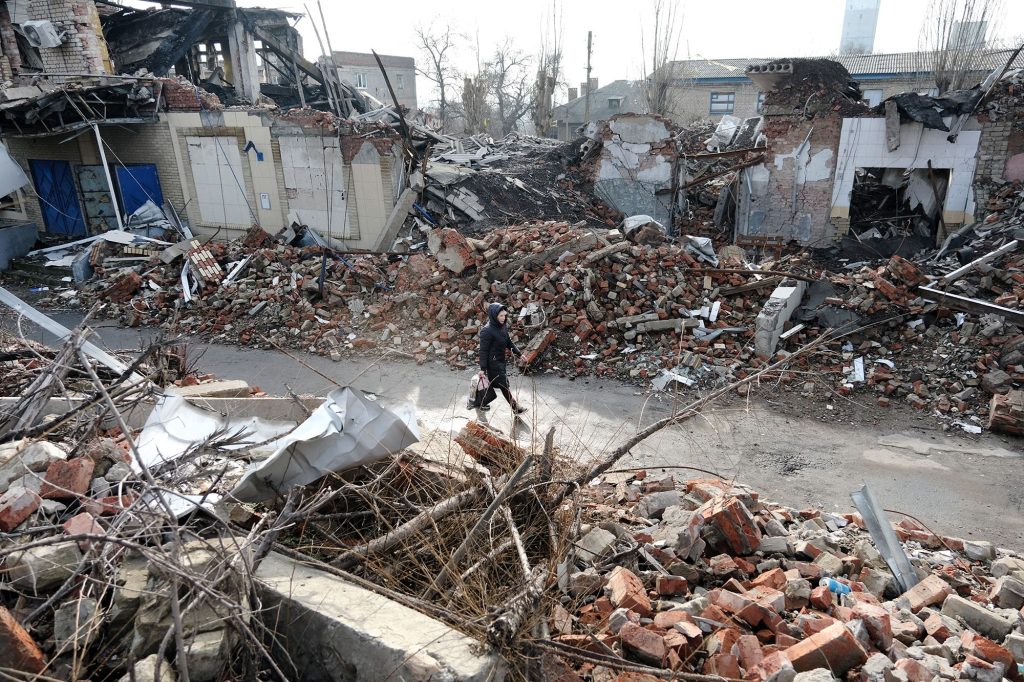Two years after its full-scale invasion of Ukraine, Russia still faces unprecedented economic sanctions. Around 260 billion euros (222 billion pounds) of central bank assets were frozen and excluded from major global financial services.
Russian airspace is closed to most Western aircraft, and Western ports are closed to Russian shipping. Formal restrictions are in place on the purchase or processing of Russian crude oil that sells for more than $60 per barrel (world prices currently range between $80 and $100). It is illegal to sell anything that can be used by the military to Russia.
advertisement
Continue reading below
The sanctions had some effect. According to the IMF, Russia's GDP is about 7% lower than pre-war projections.
Despite this situation, the Russian economy has not collapsed. But it looks very different, with the focus now entirely on the long war in Ukraine, which is actually driving economic growth.
In fact, the IMF expects Russia's GDP growth rate to be 2.6% this year. This is significantly higher than in the UK (0.6%) and the EU (0.9%). Similarly, Russia's budget deficit (the amount the government needs to borrow) tends to be less than 1% of GDP, compared to 5.1% in the UK and 2.8% in the EU.
One reason for this relative resilience is Russia's strong and independent central bank. Since 2022, it has imposed massive interest rate hikes (currently 16%) to curb inflation (which is still above 7%).
This, combined with government-imposed restrictions, has made it nearly impossible for Russian exporters and the many foreign companies still operating in Russia to get their money out of the country. These policies kept the currency in circulation within Russia and prevented a complete collapse of the ruble.
Russian companies have also learned how to circumvent sanctions, with oil regulations being a prime example. In theory, Russian oil should not be traded with the West beyond the limit, which would have a huge impact on Russia's finances.
In practice, this problem has been avoided through the use of large “black” fleets of uninsured vessels and accounting loopholes. And while sanctioning countries are trying to tighten rules, Russia's public coffers are actually swamped with oil money.
Many countries also profit by acting as intermediaries. Turkey, China, Serbia, Bulgaria and India have reportedly avoided sanctions and continued to sell goods to Russia.
It is understood that these products often include dual-use products such as microchips and communications equipment that are later used by the Russian military. And despite recent efforts, a complete system of extraterritorial trade sanctions that prohibit foreign companies from doing business with Russia is still far away.
fate of war
But perhaps the most worrying reason for Russia's economic resilience is the war itself.
For a long time, Russia's economy has not been diversified and has relied heavily on exports of natural resources such as oil and gas. And the main reason why the Russian government's revenues are relatively high today is precisely because the war led to soaring energy prices.
Russia's public spending is at unprecedented levels, with around 40% of the government budget going to war. Total military spending is expected to reach more than 10% of GDP in 2023 (the UK figure is 2.3%).
advertisement
Continue reading below
Military salaries, ammunition, tanks, planes, and compensation for killed and wounded soldiers all contribute to the GDP figure. Simply put, the war with Ukraine is currently the main driver of Russia's economic growth.
And it is a war that Russia cannot win. The costs of rebuilding and securing a conquered Ukraine would be so great that an isolated Russia would at best hope to become a quasi-partner fully dependent on China.
The expected costs of rebuilding the occupied territories are already high, given the collapse of Russia's infrastructure and growing social unrest.
A prolonged stalemate may be Russia's only solution to avoid complete economic collapse. Transforming the small industry that had to focus on the war effort, the country, whose labor shortage problems were exacerbated by hundreds of thousands of war casualties and a massive brain drain, found a new direction. You will have a hard time.
Thirty-five years after the fall of the Berlin Wall, it has become clear that resource-rich Russia is far poorer than its former Soviet neighbors, such as Estonia, Latvia, Poland and Hungary, which pursued a path to European integration. Ta.
The Russian regime has no incentive to end the war and deal with such economic realities. Therefore, we can neither win nor lose the war. Its economy is now fully geared towards the continuation of a longer and ever more dangerous conflict.![]()
Renault Foucard He is a Senior Lecturer in Economics at Lancaster University's School of Management.
This article is republished from The Conversation under a Creative Commons license. Read the original article.

